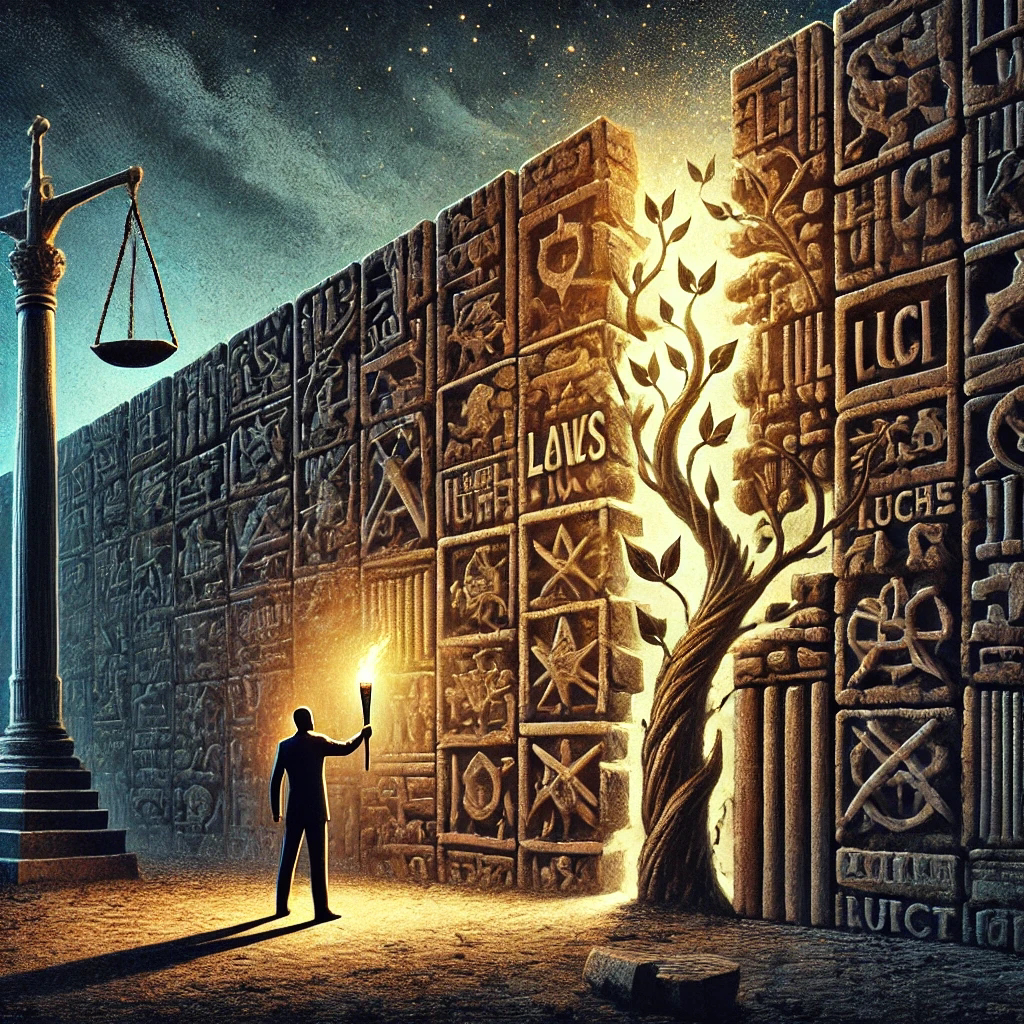Legalism is a concept that has shaped societies, religions, and philosophies for millennia. At its core, it prioritizes strict adherence to laws, rules, or codes of conduct, often at the expense of flexibility, intent, or human compassion. While structure and order are necessary, legalism can become rigid, suppressing creativity, critical thinking, and moral nuance. The debate around legalism is not just about law—it’s about the balance between order and freedom, justice and mercy, tradition and progress.
Origins and Evolution of Legalism
Legalism isn’t a modern invention. It traces back to ancient civilizations, where laws were established to maintain order in growing societies. The most famous example comes from ancient China, where Legalism (法家) was a dominant political philosophy during the Warring States period. Thinkers like Han Feizi argued that human nature is inherently selfish, requiring strict laws and harsh punishments to maintain order.
In the West, legalism found its place in both religious and secular traditions. The Hebrew Bible, the Roman legal system, and medieval Christian doctrine all carried elements of legalistic thought. Laws were seen as divine mandates or necessary structures to prevent chaos. However, as societies evolved, so did criticisms of excessive legalism, particularly its tendency to prioritize rules over ethical considerations.
Legalism in Religion: Law vs. Grace
Legalism plays a significant role in religious traditions, particularly in Judaism, Christianity, and Islam. In Judaism, the Torah contains 613 commandments, with rabbinic traditions expanding on these laws. Some Jewish sects lean heavily into legalistic interpretations, emphasizing adherence to ritual and law as central to faith. Others focus on the spirit behind the law, advocating for a balance between legal obedience and moral intent.
Christianity, especially in its early development, wrestled with legalism. The Pharisees, as depicted in the New Testament, were known for their rigid adherence to Jewish law. Jesus often challenged this legalistic mindset, advocating for compassion over ritualistic precision. His famous rebuke—”The Sabbath was made for man, not man for the Sabbath”—summarized his stance: laws should serve humanity, not enslave it.
Islamic legalism is evident in Sharia law, a system derived from the Quran and Hadith. Some interpretations emphasize strict adherence to laws governing personal behavior, social conduct, and religious duties. However, like other traditions, Islam also has movements that focus on the intentions behind the law, advocating for mercy and justice over blind compliance.
Legalism in Politics: Control vs. Liberty
Legalism extends beyond religion into governance and politics. Authoritarian regimes often thrive on legalistic structures, using laws as tools of control rather than justice. In these systems, obedience is enforced through rigid codes, with little room for individual discretion. The result is a society where fear replaces morality, and compliance becomes more important than ethical reasoning.
Democracies, while theoretically valuing individual freedom, are not immune to legalism. Bureaucratic red tape, excessive regulation, and rigid legal interpretations can suffocate innovation and personal rights. A legalistic society may struggle to adapt to change, as laws become more important than the principles they were meant to uphold. The challenge is to strike a balance—enough law to maintain order but enough flexibility to allow justice and progress.
The Psychological Appeal of Legalism
Why do people gravitate toward legalism? One reason is the comfort of certainty. Clear-cut rules eliminate ambiguity, making life more predictable. When morality becomes a set of predefined laws, individuals don’t have to struggle with ethical dilemmas or personal responsibility.
Legalism also gives people a sense of superiority. Those who follow the rules precisely often feel morally elevated over those who do not. This fosters judgmental attitudes, creating division between the “righteous” and the “lawless.” Ironically, this mindset can lead to hypocrisy—people may follow the letter of the law while completely missing its purpose.
Legalism in Everyday Life: The Unwritten Rules
Legalism isn’t confined to religious and political systems—it permeates everyday life. Workplace policies, social etiquette, and even cultural norms can become legalistic. When people follow rules rigidly without considering context, they risk losing sight of the bigger picture.
Think about corporate environments where policies matter more than productivity or ethical considerations. Employees may be punished for minor infractions, while major ethical issues go unnoticed. In social settings, cancel culture can take on a legalistic form, where individuals are “judged” based on strict, inflexible standards of behavior.
Even personal relationships suffer under legalism. When relationships become transactional—where love, respect, or forgiveness must be “earned” through specific behaviors—authentic human connection is lost. Flexibility, understanding, and grace are essential for meaningful relationships.
Legalism vs. Justice: The Danger of Losing Sight
One of the biggest dangers of legalism is its ability to undermine true justice. When people prioritize rules over morality, injustice can thrive. History is full of examples where legalistic systems justified oppression, discrimination, and even genocide. The Holocaust, apartheid, and racial segregation were all enforced through legally sanctioned rules.
Blind adherence to the law does not guarantee justice. Laws can be flawed, biased, or outdated. Ethical societies recognize that legal structures must evolve with human values. When legalism is taken to the extreme, it becomes a weapon rather than a tool for fairness.
Breaking Free from Legalism: A Call for Balance
So how do we avoid falling into the trap of legalism? The key is balance. Rules and laws are necessary, but they must serve justice, not replace it. Critical thinking, compassion, and ethical reasoning should always guide legal structures.
In religious practice, spiritual growth should be prioritized over rigid rule-following. In politics, laws should adapt to societal needs rather than remain static. In personal life, people should value relationships and principles over rigid expectations.
Ultimately, legalism is not the enemy—rigid, thoughtless application of rules is. A healthy society understands when to follow the law and when to challenge it. The real measure of justice is not in how well we obey but in how well we serve the greater good.
Stay curious.




